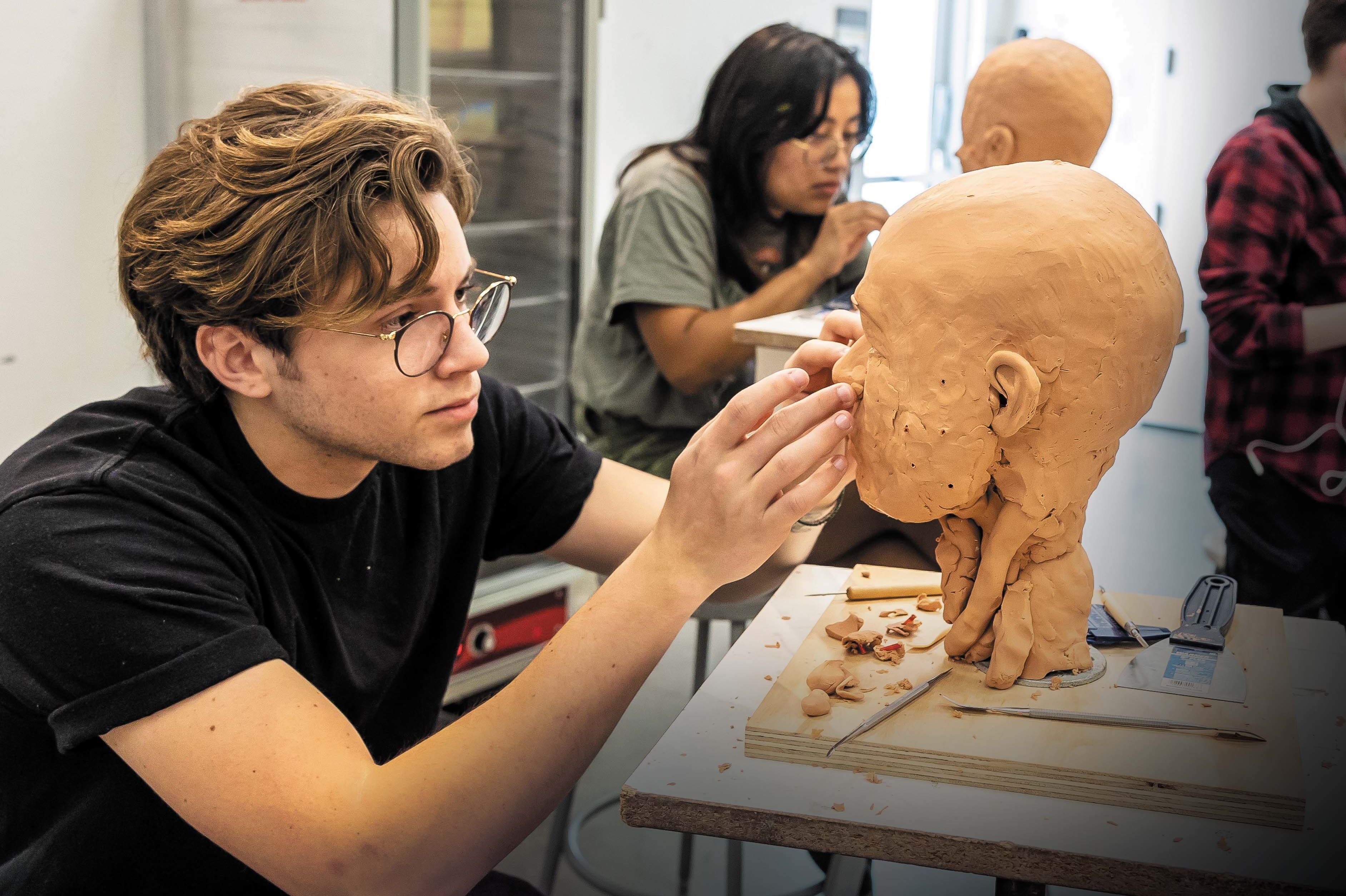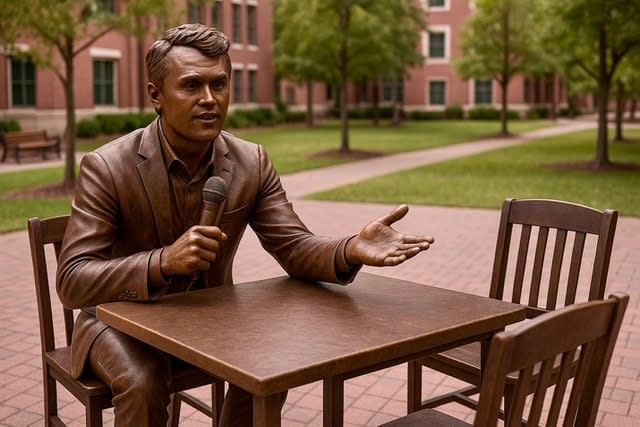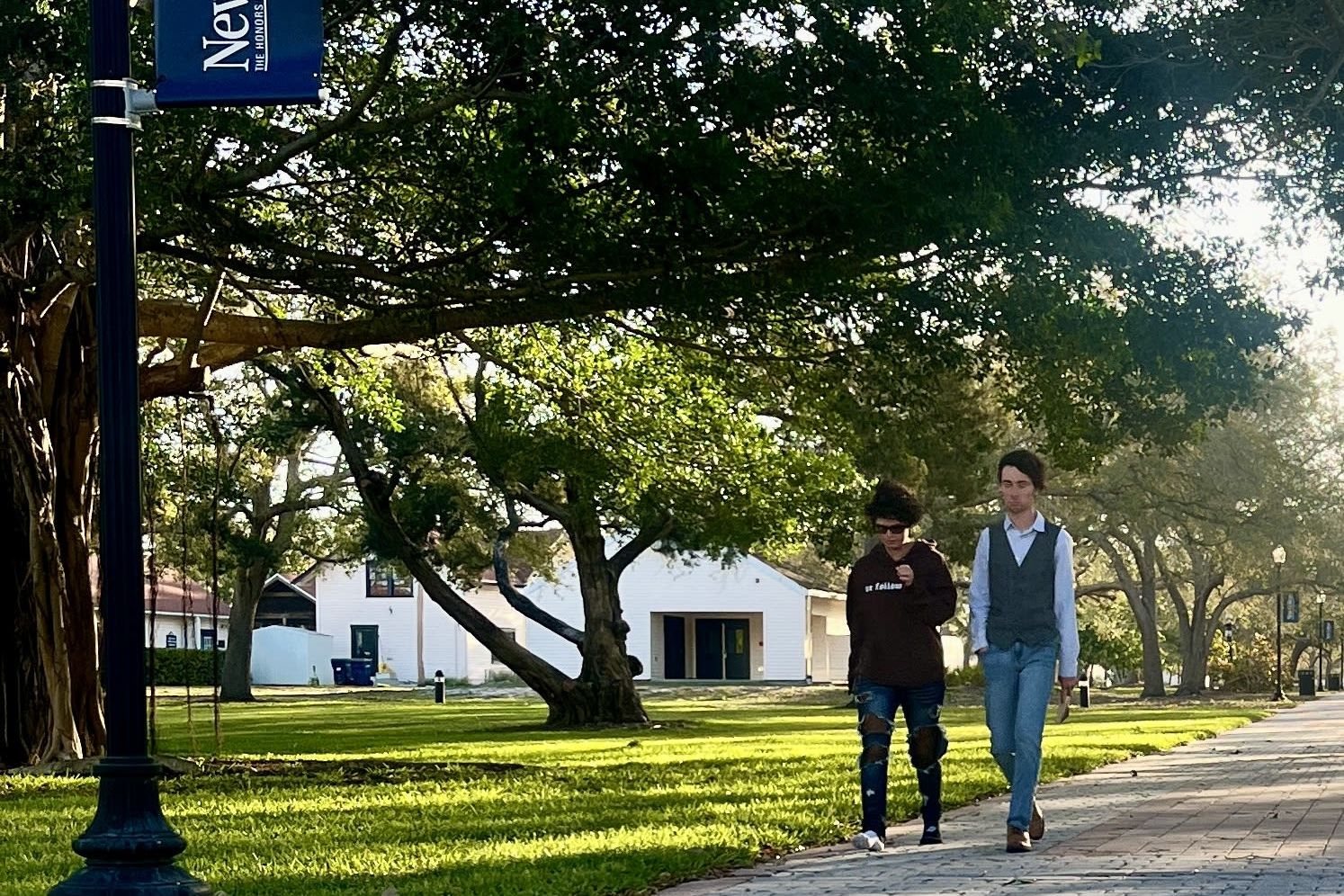Yoleidy Rosario-Hernandez on Warriors of Sarasota and Cultivating 'Spaces of Healing and Dialogue'
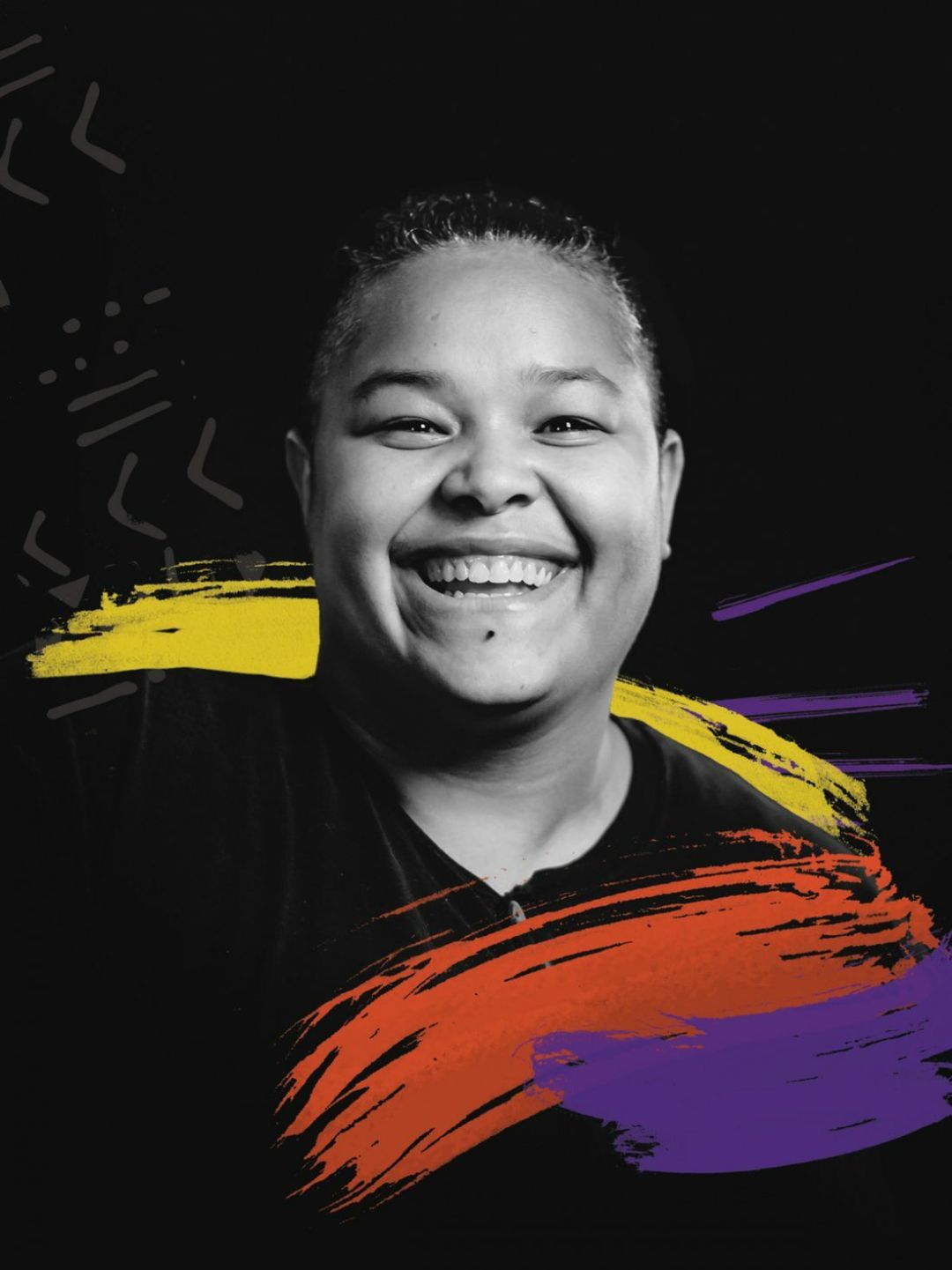
Yoleidy Rosario-Hernandez
Image: Courtesy Photo
This is a big week for Mosaic Movements, Yoleidy Rosario-Hernandez’s nonprofit-in-the-making. Its second major project—a documentary titled Warriors of Sarasota: The Interconnections of Diasporic Roots, Identity, Sisterhood and Service—will debut on Friday, Dec. 2, along with a photo exhibition and panel discussion at Sarasota's MARA Art Studio + Gallery. The film was shot by Ringling College of Art and Design students under Rosario-Hernandez’s oversight and financed by a grant from the Community Foundation of Sarasota County.
Like Rosario-Hernandez, who uses the pronouns ze and zir, Friday's “docu-gallery storytelling event” resists reductive description. But the exhibition’s invitation is simple and warm: Come meet stupendous local women as they share their struggles and their triumphs. There will be sighs and laughs and food trucks.
A trans educator and artist of Afro-Dominican and indigenous Tainx heritage, Rosario-Hernandez grew up in New York City. As a kid, ze was always drawing, so ze attended The High School of Fashion Industries in Manhattan and focused on graphic art and illustration. Then the theater bug bit. Because of Rosario-Hernandez’s undocumented status, through much of high school, zir parents enrolled Rosario-Hernandez in academics over the summer while they visited the Dominican Republic. One English teacher, a theater fanatic, rustled up student tickets to shows on and off Broadway, hooking Rosario-Hernandez so thoroughly that ze majored in theater at Pennsylvania's Dickinson College.
Illustration, graphic arts, theater, spoken word poetry, film—all have inspired Rosario-Hernandez’s creative life. Stories of intersectional identity have also characterized zir graduate study and professional career in higher ed administration and diversity consulting. In 2019, Rosario-Hernandez moved to Sarasota to serve as associate dean of students and as the inaugural director of the Center for Diversity and Inclusion at Ringling College of Art and Design. This fall, ze took a job at New College of Florida as its chief diversity officer and dean of diversity, equity and inclusion. Along the way, Rosario-Hernandez has been learning about Sarasota’s varied communities—and figuring out how to open forums for underrepresented voices.
Rosario-Hernandez recently spoke with Sarasota Magazine about zir work. The interview has been edited for length and clarity.
What’s the story behind Warriors of Sarasota?
"Under my arts organization, which I'm calling Mosaic Movements, the goal is to start showcasing and documenting and telling stories about communities of color, marginalized bodies and the queer community. It’s a place for artists of color to collaborate—an incubator for us to share ideas and maybe cross-collaborate on different projects that focus on telling the stories of our communities.
"The first narrative project was called Violet Stripes. We released a documentary last year based on conversations between a number of LGBTQ elders and youth. Students and local residents shared stories of their individual journeys.
"Our second project is Warriors of Sarasota, highlighting the stories of women of color and their contributions to our community. We interviewed a number of different people to share their stories.
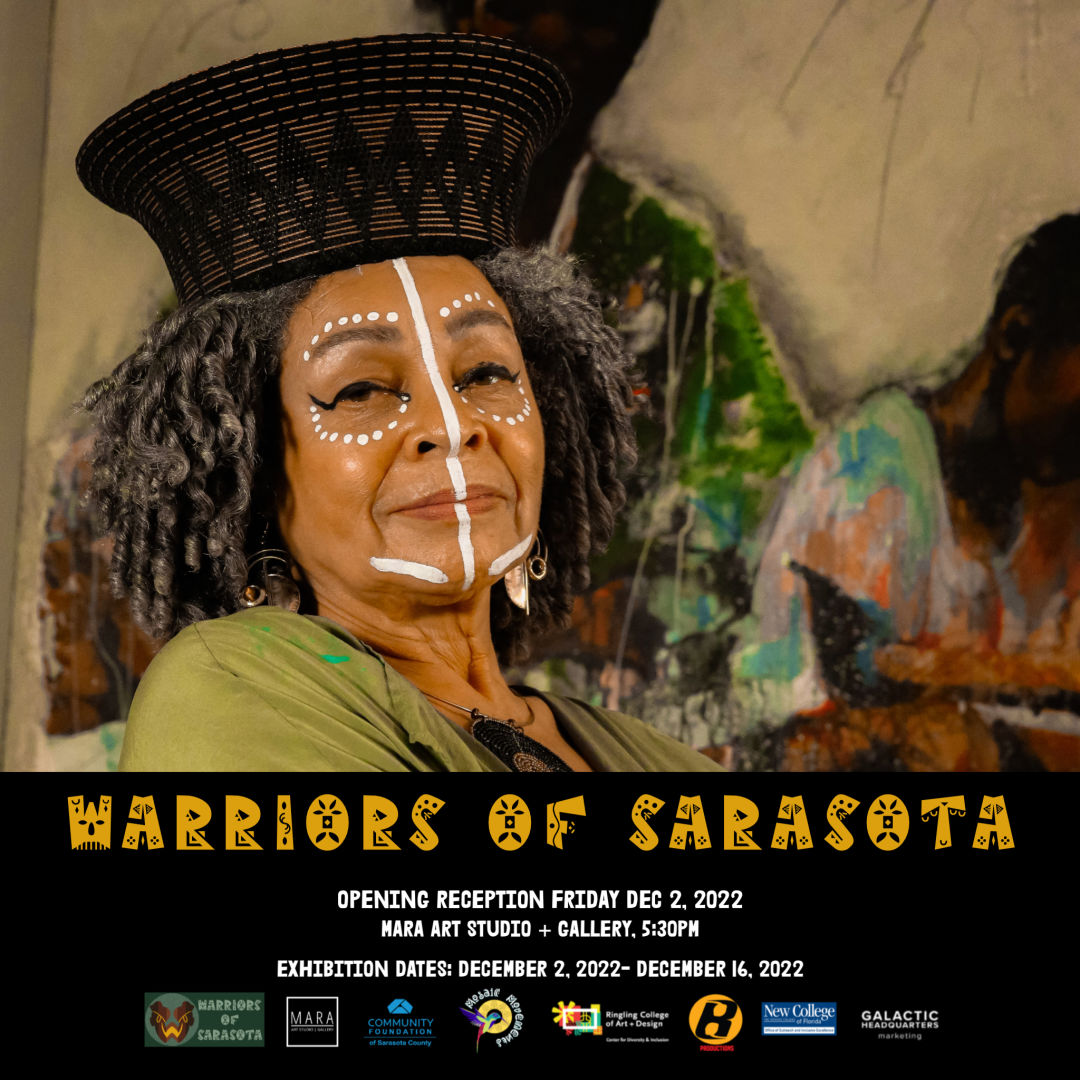
A flyer advertising this Friday's event.
Image: courtesy photo
"The movie Black Panther was an inspiration for the ways in which we talk about Black women as warriors. We also thought more deeply about the Dahomey tribe, giving a nod to the fact that women of color, particularly Black women, have always been fighting for our communities. So this particular part of the exhibition is stylized to pay homage to our African ancestors. The other part is looking at Latinx representation, which is why we're talking about this project as being a diasporic exploration of identity, service and sisterhood.
"We had Ringling students involved. We had some community members involved, such as Marquis Dawsey, who's starting his own organization called Black Lemonade Productions. We had MARA Art Studio + Gallery share space so that we can have the exhibition and documentary release and the opening reception. Ringling College, New College, the Community Foundation of Sarasota County, Galactic Headquarters Marketing—there have been many different people involved in supporting this project to highlight the amazing work that sometimes falls under the shadows, work that should be affirmed and validated and celebrated. So this is our homage to all these women who are really big contributors to the creativity of our community, who are working with youth, working with elders, working on cultivating community, working on activism and advocacy. It’s a way of bringing all of those women who are intersecting with so many different subsets of our community into a space where we can look at all of the work together."
Two Ringling students, Mafer Bencomo Arevalo and Celi Mitidieri, are screening their documentary shorts. Celi’s spotlights you. How has it felt to be on the other side of the interview?
"I’m most nervous about that. I've seen it, so I'm not nervous about her final product or anything like that. I just don't usually center myself, so it's going to feel awkward for me, just because I'm going to be in my own body opening up or watching things about me. I'm good at being behind the scenes, not always in front of the camera."
You’re working on articles of incorporation to transform Mosaic Movements from an informal organization into a full-fledged nonprofit. What’s your aim here?
"This is the first time I feel brave enough to take what I do as an artist not just as a sort of hobby, but as a commitment, where I am making a valid space for us to be able to get more resources. As an informal organization, it is very difficult to do bigger projects or get access to funding.
"When I think about Mosaic Movements, what I'm looking at is not just siloed forms of art, but how these forms of art interact with one another and coexist in spaces. Hence, with Warriors of Sarasota, this documentary film has an exhibition. It's about static or visual arts in conversation with documentary and performance. I'm looking for places where I can expand that dialogue between the arts.
"Sometimes people see your profession and where you work as your only identity. That’s not allowing space for someone to be their full selves outside of an institution. We all have so many different parts of our journeys. There's a siloed way that people see you—like, you're a professional at a higher education institution. We also do that for artists. You are a graphic designer. You are a theater person. Yet many of us do many different forms of art in different disciplines. That's definitely true for communities of color, out of survival. We've had to learn so many different pieces to be able to put food on the table and navigate the politics of money and funding. We're always navigating.
"I'm excited about the possibilities that Sarasota offers in terms of having so many different artistic spaces that one can tap into. But a lot of work needs to happen to validate and affirm and bring in communities of color, and particularly artists of color. So many artists are either creating their own spaces or collaborating with their own networks. Others are just going elsewhere to find that affirmation—to places like Orlando or Miami or New York City. I'm trying to find what would I call my artistic home in Sarasota. I'm still trying to figure out what that looks like for me."
We live in fraught times. There's legislation that says that we shouldn't be educating people about diversity on the job or at school. But, obviously, this is work that you're committed to as a diversity professional and as an artist. Any thoughts?
"We are definitely in very difficult times. People are in a lot of conflict. I think the media hasn't helped. There are so many antagonizations of all different sides that have created more hurt and pain in our community. We’ve stopped listening to one another and really closed off to understanding different perspectives. So, it’s more crucial for someone like myself in the work that I do, either as an artist or as a higher education professional, to cultivate places of healing and dialogue so that folks can get to the space of being human with one another, across difference."
The opening reception for Warriors of Sarasota will take place 5:30-7:30 p.m. on Friday, Dec. 2, at MARA Studio + Art Gallery, 1421 Fifth St., Suite A, Sarasota. Everyone is welcome, free of charge, but organizers request an RSVP.
